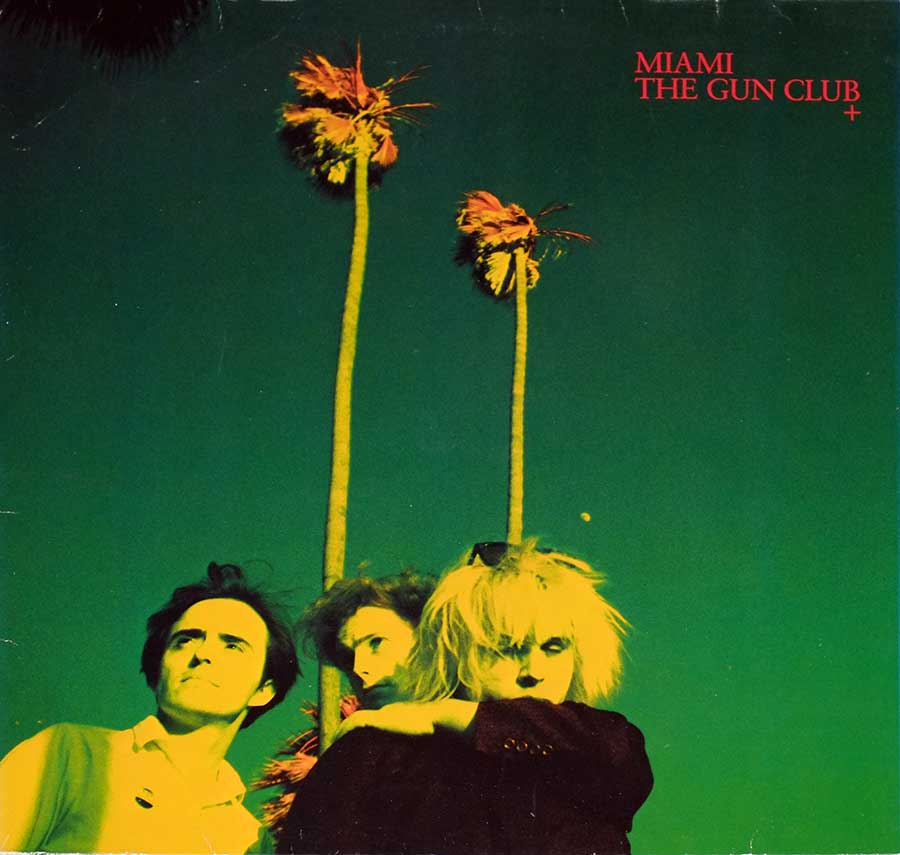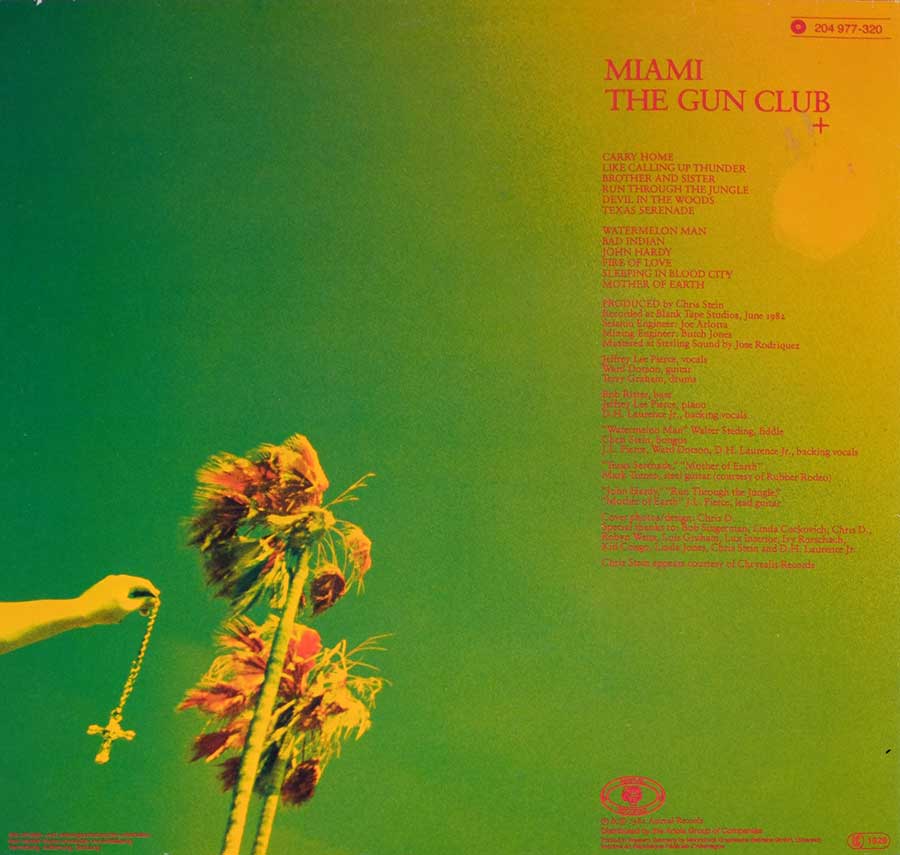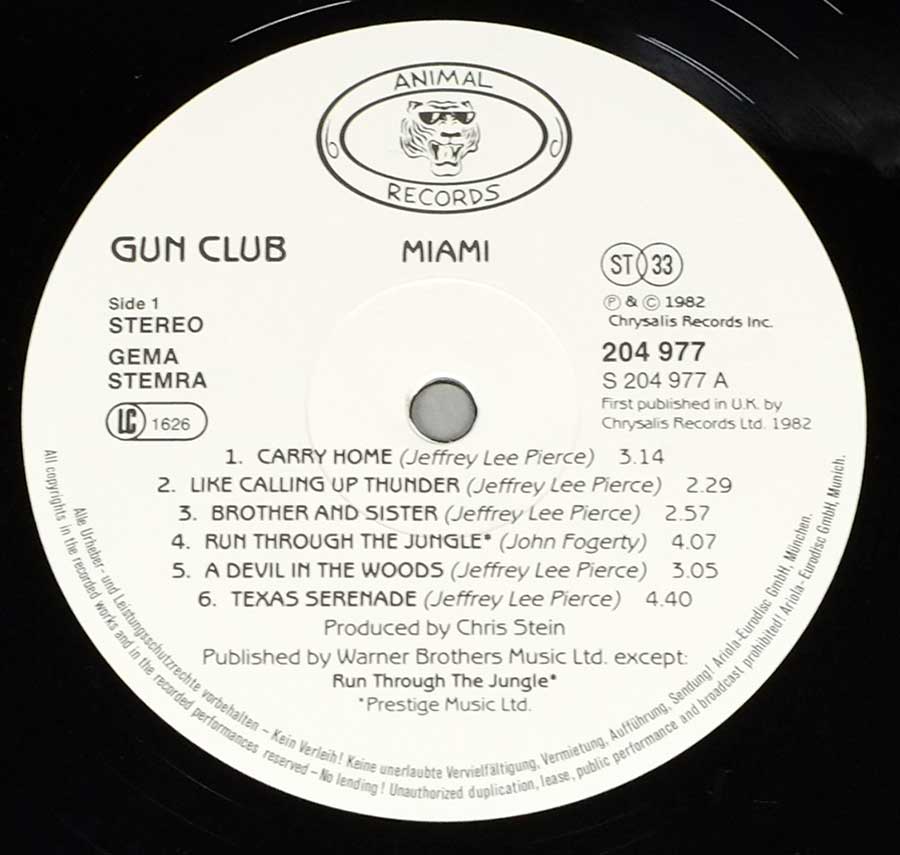Album Description:
In the vibrant tapestry of musical evolution, certain albums stand as remarkable crossroads where genres converge and new sounds emerge. The Gun Club's "Miami", a gritty fusion of punk and blues, etched its name into this very narrative when it hit the airwaves in 1982. Released under Animal Records, this 12" LP vinyl album remains a testament to the band's audacious style and relentless creativity.
"Miami" was the second offering from The Gun Club, a band that dared to traverse uncharted musical territories. Spearheaded by the enigmatic Jeffrey Lee Pierce, the album's vocals, guitar prowess, and haunting piano melodies were uniquely his. The album showcased Pierce's uncanny ability to blend raw, bluesy grit with the driving force of punk rock.
Adding a touch of mystique to the album, iconic vocalist Debbie Harry made appearances as a backing singer, adopting the pseudonym "D.H. Laurence Jr". Her voice weaves through the tracks, leaving an indelible mark on the album's sonic fabric.
Behind the scenes, producer Chris Stein brought his artistic sensibilities to the project. Stein's touch, known from his work with Blondie, brought a polished yet unbridled quality to "Miami". Sound engineer Joe Arlotta's expertise ensured the album's sonic nuances were captured with precision.
The album was birthed within the walls of Blank Tape Studios in June 1982. This creative space became the incubator for The Gun Club's distinctive blend of sounds, where punk's rebellious spirit intertwined with the soulful wails of blues.
The album artwork, lensed by Chris D., stands as an enigmatic visual companion to the music. A testament to the era's DIY aesthetic, it mirrors the unapologetic attitude and individuality that The Gun Club exuded.
"Miami" boasts a lineup of talented musicians who helped sculpt its sonic landscape. Ward Dotson's lead guitar work interplays seamlessly with Pierce's own guitar and piano skills. Terry Graham's dynamic drumming provided the heartbeat, while Rob Ritter's basslines anchored the compositions.
Additional contributors elevated the album's eclectic charm. Deborah Harry's backing vocals, shrouded in an alias, brought a touch of star power. Walter Steding's fiddle on "Watermelon Man" added a rootsy texture, while Chris Stein's bongos infused a subtle rhythm into the mix. Mark Tomeo's steel guitar work on tracks like "Texas Serenade" and "Mother of Earth" added layers of melancholic beauty.
The tracks within "Miami" are a sonic journey. From the entrancing blues of "Watermelon Man" to the fevered intensity of "Run Through the Jungle", the album's diversity captures the essence of The Gun Club's experimental ethos.


